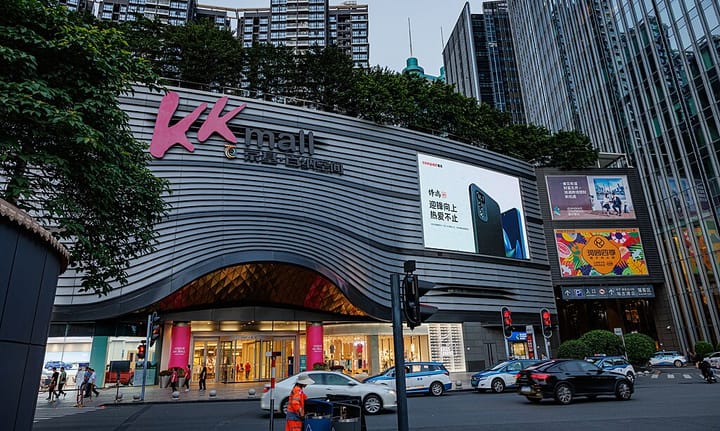TikTok continues to thrive despite US-China tensions

A few minutes every morning is all you need.
Stay up to date on the world's Headlines and Human Stories. It's fun, it's factual, it's fluff-free.
While tensions between the US and China continue, many smaller markets are being forced to take sides. For some companies, the rift is proving to be exceptionally uncomfortable.
TikTok, the Chinese social networking service, has sparked controversy over the past couple of months as a trade battle over the app’s sale continues to intensify between the Trump administration and the Chinese government.
The push for the sale began after accusations from United States President Donald Trump that the app was a threat to national security. Trump has claimed that the Chinese government may obtain user data from the app’s Chinese parent company, ByteDance.
These allegations prompted Trump to demand that TikTok sell its US operations to an American owner. In August, he gave ByteDance 90 days to sell or risk a ban in the app’s largest international market, a move that would feasibly stifle the app’s success.
But later that month, China halted a potential sale by adding an amendment to its export conditions, requiring companies to receive government approval before exporting Chinese technology.
In an article published by China’s state run Xinhua News Agency on August 29, a professor of international trade at China’s University of International Business and Economics, Cui Fan, said that the new trade regulations would likely encompass ByteDance’s technologies.
“If ByteDance plans to export relevant technologies, it should go through the licensing procedures," Xinhua reported Cui as saying.
US government crackdown
In July, US Secretary of State Mike Pompeo said Washington and its allies must use “more creative and assertive ways" to press the Chinese Communist Party. This comment came in response to numerous issues the US has deemed to be “unconstitutional" as well as some cases in which the US accuses China of committing human rights violations.
Such cases include the Uighurs in Xinjiang, territorial disputes in the South China Sea and accusations around the coronavirus and Chinese telecommunications company Huawei.
While tensions between the US and China continue, many smaller markets are being forced to take sides. For some companies, the rift is proving to be exceptionally uncomfortable.
TikTok, namely, has now found itself at the forefront of the political crossfire.
The sale of the app comes after the formerly Chinese-owned LGBTQ+ dating app Grindr sold a 98% stake in the company to a US private equity company in March. The sale resulted from similar pressure by the US government after authorities revealed that Grindr engineers in Beijing could access personal data on US users. This data included users’ private messages and whether or not they had HIV.
Although TikTok is certainly not the first company to find itself in the middle of a political dispute, its status in the US has been closely-watched by the media, as the fate of tech-giant remains uncertain.
Who were the bidders?
On August 27, Microsoft and Walmart originally teamed up for a bid on the video-sharing app.
In its statement, the big-box retailer said, “We believe a potential relationship with TikTok U.S. in partnership with Microsoft could add this key functionality and provide Walmart with an important way for us to reach and serve omnichannel customers as well as grow our third-party marketplace and advertising businesses."
“We are confident that a Walmart and Microsoft partnership would meet both the expectations of U.S. TikTok users while satisfying the concerns of U.S. government regulators," said the retailer.
However, the app rejected Microsoft’s offer and chose the alternate bidder, Larry Ellison’s Oracle, as its tech partner, a company that was endorsed by Trump after its co-founder organized a fundraiser for the president’s campaign. Still, it remains unclear if the acquisition will be approved or if Oracle will become the app’s majority shareholder.
Success continues
Despite the tense political climate, the social-media company has continued to climb rapidly during the pandemic.
According to app analytics firm Sensor Tower, the app has been downloaded more than 165 million times in the US. In fact, as of July 22, TikTok became the most frequently downloaded app worldwide and the second in the US after Zoom (whose relationship with China has also raised security concerns within the US).
Even with the ban of TikTok in India, which resulted in the app losing 200 million of its users in its second-largest international market, TikTok continues to be the highest-grossing app worldwide, says Sensor Tower.
This popularity will make it increasingly difficult for President Trump to institute a ban without facing severe backlash from the app’s users. Knowing this, the Chinese president may put a halt on the company’s sale, forcing President Trump to either ban the app or concede to the app remaining in the Chinese government’s control.
Nevertheless, this situation may offer insight into where the geopolitical lines lie for corporations moving forward, specifically whether they will be forced to choose between the two countries for their operations.
Logan Purk, a senior equity analyst at Edward Jones, told Business Insider, “If this situation deteriorates further … I think that can start to tip some dominoes, with some more nationalistic stances against US-based products."
Have a tip or story? Get in touch with our reporters at tips@themilsource.com




Comments ()